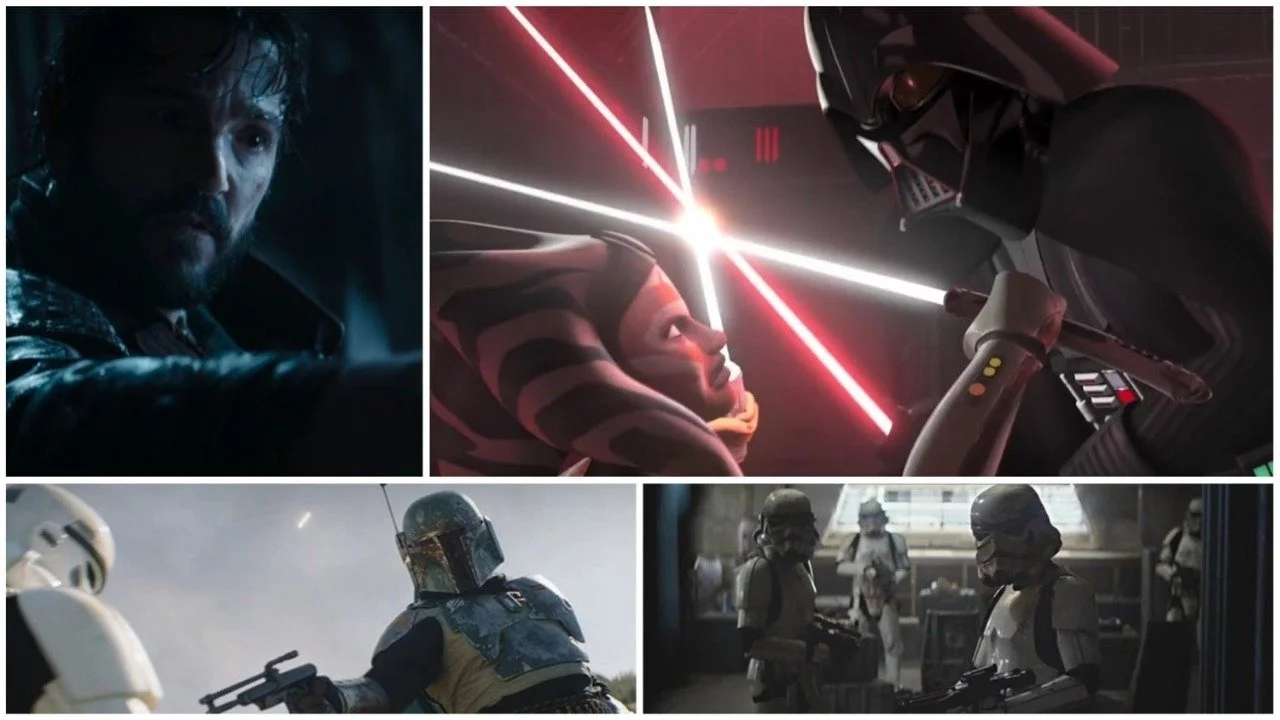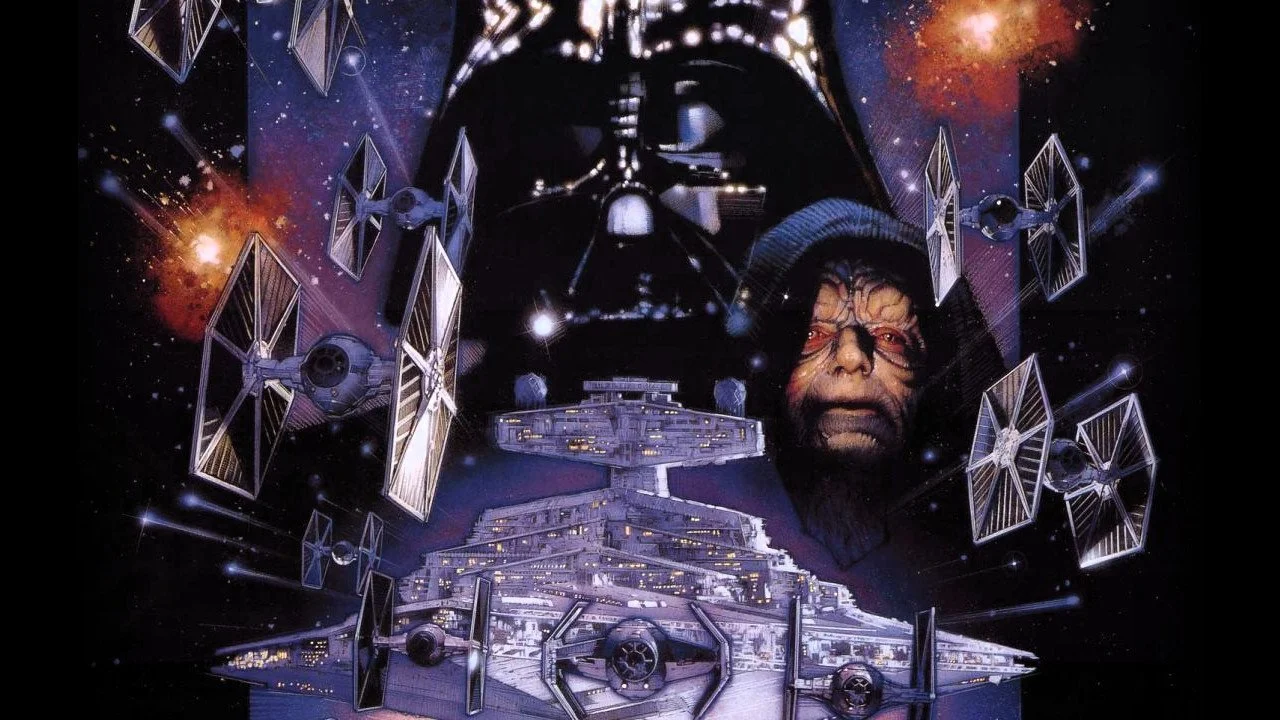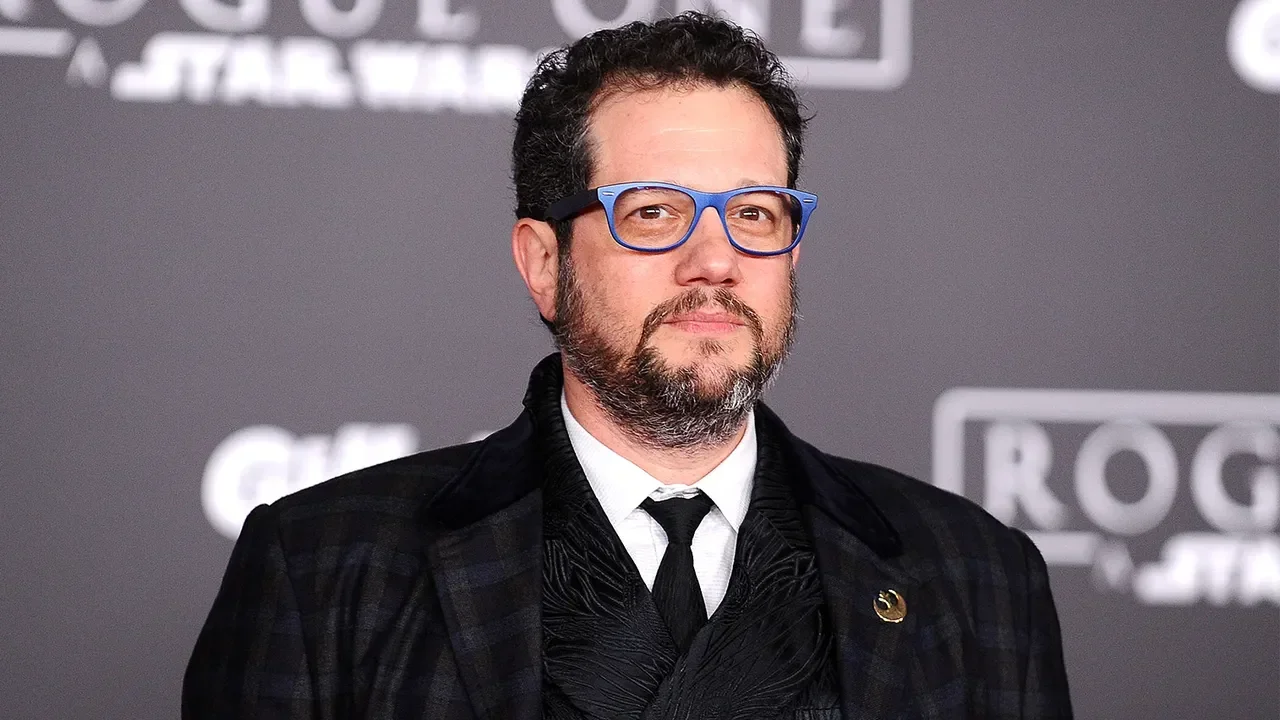Is Modern 'Star Wars’ Pessimistic?
Image Source: Culture Slate
During a recent interview on The Late Show with Stephen Colbert, Colbert asked A Song of Ice and Fire author George R. R. Martin if modern sci-fi/fantasy TV and film are ‘pessimistic’ with a focus on the downfall and decline of societies. Colbert and Martin then mentioned how older science fiction tended to be more optimistic and noted that modern sci-fi and fantasy adaptations for the last thirty years have been focused on the dystopian downfall. However, Martin also mentioned how older sci-fi writers such as Asimov, Heinlein, and Niven had similar optimistic views of humanity expanding across the stars.
Colbert’s question was based on a Washington Post opinion piece by Alyssa Rosenberg, which mentioned how movies and television shows based on sci-fi and fantasy focus on downfall and decline. She mentioned shows like House of the Dragon and The Rings of Power and their focus on impending doom. Rosenberg also points out other franchises, such as the Marvel Cinematic Universe, Star Trek, and Star Wars. Outside of Rosenberg’s opinion piece, even older fans of franchises aimed at younger audiences, such as Pokémon, also seem keen on a more mature iteration.
RELATED:
Image source: Yahoo!
While Star Wars is also generally seen as a family-friendly franchise, as evident in some of its media and merchandise targeted at younger audiences, it also has older, more mature fans. These fans generally grew up with the franchise or were introduced to it at a later age and, arguably, favor more ‘darker’ and ‘mature’ themes and stories. Similar darker themes echo throughout the franchise and cues from previous iterations, such as the theme of fighting one’s inner darkness seen in Return of the Jedi and The Rise of Skywalker.
The Mandalorian, Lucasfilm and Disney’s first foray into live-action Star Wars TV, is considerably more mature than the theatrical movies and might even become darker in its third season. The latest live-action TV foray into the Star Wars universe, Andor, is also considered much darker and more mature compared to the cinematic releases and is one of its main appeals.
Even the animated Star Wars TV shows such as The Clone Wars and Rebels, while aimed and released on cable TV channels aimed at younger audiences, were notable for their levels of violence and mature themes. These two series are noted to feature conflict during dark times. The Clone Wars chronicled said conflict and ended with Ahsoka Tano leaving the Jedi path and Order 66 initiated by Emperor Palpatine. Meanwhile, Rebels featured a growing rebellion during the authoritarian rule of the Galactic Empire.
While the setting for Star Wars stories in almost every medium - films, TV series, novels, comics, and video games - is set during times of decline (The Clone Wars era) or a dystopian age (the Imperial era), to call these stories’ pessimistic’ would be misguided. From its beginning in A New Hope, Star Wars always had an optimistic message, even though the ending of individual movies or TV episodes aren’t always upbeat. An example from modern Star Wars would be the ending of Rogue One, where the Rebel strike team achieved their goal of retrieving and transmitting the Death Star plans at the cost of their own lives.
Image source: Reddit
While Star Wars was mainly influenced by what Colbert and Martin mentioned as ‘optimistic’ golden age and silver age pulp stories, it can be argued that Star Wars stories are more than about good vanquishing evil, light against dark. Instead, Star Wars arguably is about overcoming. Even George Lucas has reinforced this idea through the redemption of Anakin Skywalker, who had lost his identity and became Darth Vader.
Luke Skywalker also went through a redemption arc where he gave up on reestablishing the Jedi order and went into exile, only to be inspired to return after a visit from Rey and Yoda in The Last Jedi. Likewise, former Jedi Ahsoka Tano found purpose after leaving the Jedi order by becoming a Rebel agent helping Kanan Jarrus, Ezra Bridger, and the crew of the Ghost in Star Wars: Rebels. By facing their fears, the heroes overcome their doubts and, in turn, bring change to the galaxy.
The defining tone of Star Wars has changed throughout the decades in line with the times, the message its creators want to convey, and fan expectations. While a Republic ravaged by a galaxy-wide Clone Wars and subsequently repressed by Palpatine’s Empire followed by a sudden, violent coup by the First Order may seem to indicate Star Wars also falls into dystopian fiction, the overarching theme is one of optimism despite the surrounding darkness.
READ NEXT:















